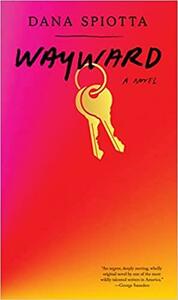Take a photo of a barcode or cover
emotional
reflective
medium-paced
Plot or Character Driven:
Character
Strong character development:
Yes
Loveable characters:
Yes
Diverse cast of characters:
Yes
Flaws of characters a main focus:
Yes
Up to the very last chapter this was a very painful read. I stuck with it, because I hoped that the author did not subject us to being trapped in the head of a well to do yet very miserable lady dealing with miserable times in the most miserable way possible for nothing. And there was finally a point to all of it at the very end. Nothing clever or revolutionary, but ultimately touching and relatable.
This book was trying to do too many things and not doing any of them particularly well. The characters had various insights that I agreed with but in a way that mostly seemed obvious and pandering, not insightful. Also I am increasingly bothered by depictions of middle-aged white women who are completely obsessed and absorbed by aging. I really want there to be more interesting and complex ways to think about and incorporate aging into characters and storytelling (and life). I can't blame this one novel for all of that obviously, but it is an example of what bothers me.
slow-paced
Plot or Character Driven:
Character
An engrossing novel about three “wayward” women — Sam, who leaves her family after falling in love with a historic house in Syracuse; her daughter, who is embarking on a risky path of her own; and a fictional member of a 19th-century commune. Good questions about women’s roles, sexuality and freedom.
medium-paced
Plot or Character Driven:
Character
Strong character development:
Yes
Loveable characters:
No
Diverse cast of characters:
No
Flaws of characters a main focus:
Yes
I don’t understand the hype over this book. Blurbs used the word “complex,” which I think is the opposite of how the author portrays this protagonist. She seems like a person with little agency, buffeted about by popular culture. Her understanding of the complexity of US society is very shallow. I was underwhelmed by her.
Most of the other characters are flat out stereotypes. What in the world was the point of the “crone” groups and the “resistance” meetings other than ridicule? And to have a gratuitous episode where the main character witnesses a teenager murdered by police? It seems like the author was trying to make a random tapestry of the last five years of American history through the eyes of one white woman, with low stakes, low consequences, little jeopardy.
Parts of the novel infuriated me. In particular, the subplot of one woman being “canceled” seemingly for no reason. In a bizarre choice, the author doesn’t even share the story of what happened. As readers, we’re just supposed to accept that “woke” groups wake up one day and mysteriously decide to shun one of their members for no reason and isn’t that crazy? Why not allow the reader to know what happened so she can judge for herself?
This book just seems like a mess to me
Most of the other characters are flat out stereotypes. What in the world was the point of the “crone” groups and the “resistance” meetings other than ridicule? And to have a gratuitous episode where the main character witnesses a teenager murdered by police? It seems like the author was trying to make a random tapestry of the last five years of American history through the eyes of one white woman, with low stakes, low consequences, little jeopardy.
Parts of the novel infuriated me. In particular, the subplot of one woman being “canceled” seemingly for no reason. In a bizarre choice, the author doesn’t even share the story of what happened. As readers, we’re just supposed to accept that “woke” groups wake up one day and mysteriously decide to shun one of their members for no reason and isn’t that crazy? Why not allow the reader to know what happened so she can judge for herself?
This book just seems like a mess to me
Whew, this book was messy! We start with an upper middle class woman who blows up her suburban life trying to bring her ideals and her life into closer alignment. She leaves her husband (who’s barely a cypher in the novel anyway), and of more moment, her adolescent daughter after buying a Craftsman fixer-upper in inner city Syracuse. This novel takes place in the aftermath of the 2016 election—a brutal wake up call for women of Sam’s ilk, although Sam’s tribulations could be due as much to the upheaval of peri-menopause. She moves in to the house, and attempts to find a community in a group of other women aghast at the election results. Rather than find solidarity, though, Sam is discouraged by the infighting and seeming futility of the group. While she keeps up a relationship with one of the women (from a group delightfully named Hardcore Hags, Harridans and Harpies), she draws more sustenance from her work with a local museum commemorating the life of a fellow quester, a fictional runaway from the 19th century Oneida colony: a reminder that Americans have a long history of experimenting with different ways to arrange their private lives to fit their ideals. In 2016, Utopia is still discouragingly far off, and wouldn’t even help with our most private misfortunes. Sam’s elderly mother is sick, but won’t tell her with what. Sam’s daughter Ally has her own trials although she seems more than equal to them. In fact, her daughter’s ultra-competence means she needs Sam even less. By the end, I sympathized with Sam’s nearest and dearest when they found her a bit much. While there were enjoyable sections, and decent writing, I found the book as a whole too much and not enough: too much of everything, not enough something in particular.
Excellent writing with some prickly but honest and witty characters. I really liked this one ans want to read more of hers!
lighthearted
reflective
medium-paced
Plot or Character Driven:
A mix
Strong character development:
Complicated
Loveable characters:
Complicated
Diverse cast of characters:
No
Flaws of characters a main focus:
Yes


